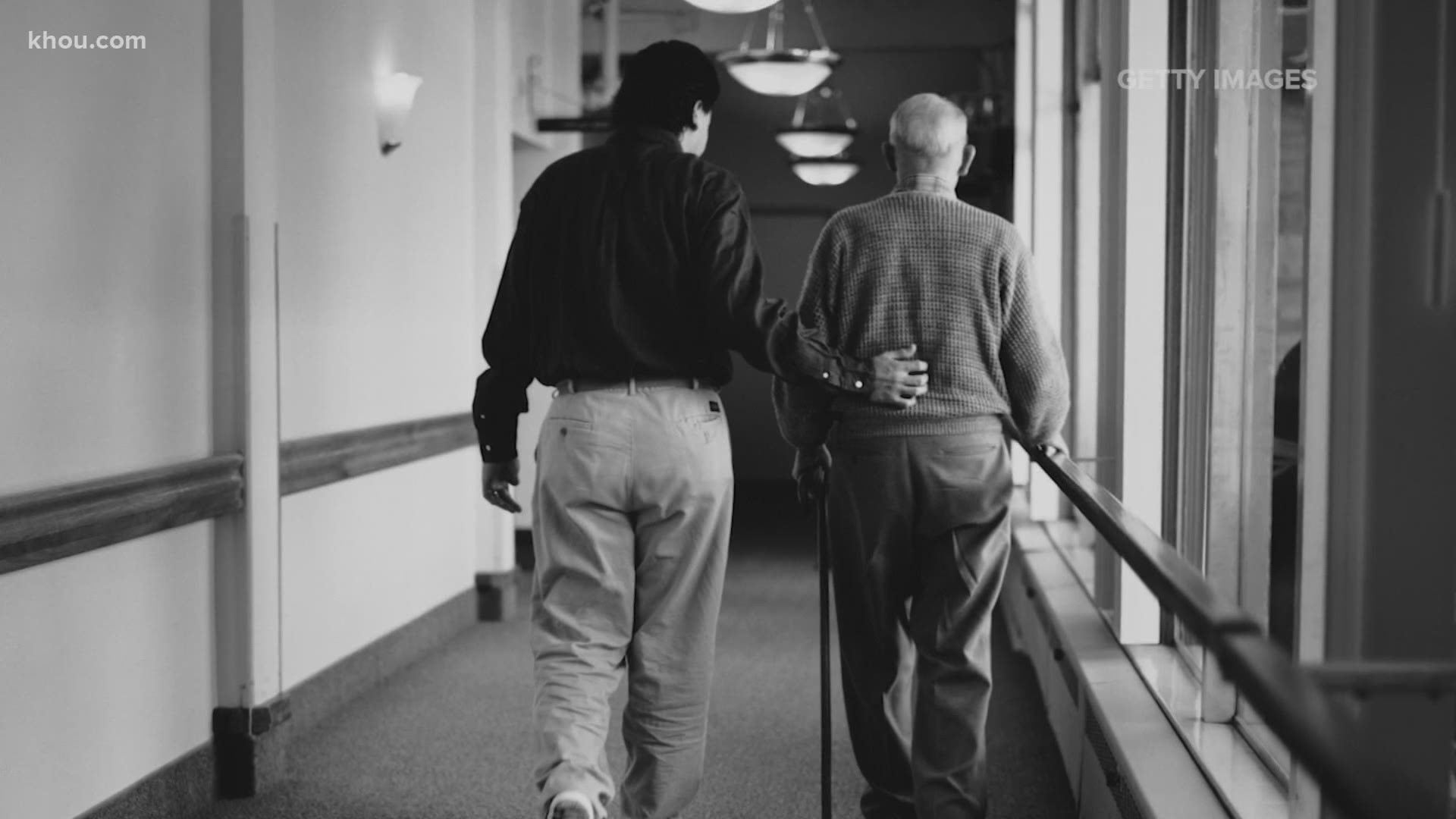A new federal online tool to help the public check coronavirus cases at nursing homes contains errors and is filled with holes, according to an analysis by KHOU 11 Investigates.
The Centers for Medicare and Medicaid Services released the data Thursday after a new regulatory rule announced May 1, requires nursing homes to report the number of COVID-19 cases in a given facility, as well as the total number of deaths to the Center for Disease Control and Prevention’s National Healthcare Safety Network.
In Texas, 345 nursing homes, or 28% of all facilities in the state, have not submitted any numbers at all. Several of the ones that have contained inaccuracies.
For instance, officials with Harris County Public Health said there were 14 coronavirus-related deaths and at the Oakmont Healthcare and Rehabilitation Center in Humble. But the CMS online database lists only one COVID-19 death at the facility, along with 42 total positive cases of the virus.
The company that owns the Humble facility, Diversicare, did not address the drastic difference in death numbers, but acknowledged problems with the data.
“Many providers, including Diversicare, have identified discrepancies in the data. We are currently caring for 46 COVID-19 positive residents at our center.
Dr. Umair Shah, executive director of Harris County Public Health, said each positive case—and especially each death—do not just represent numbers: they are people with families in our community.
“We need to invest in public health reporting systems that allow us to receive timely, accurate data from all levels of response,” Shah said.
In Washington County, the online federal database lists five coronavirus-related deaths at the Brenham Nursing and Rehabilitation Center. However, local public health officials confirm 24 residents have actually died from the virus.
“We are currently reviewing the CMS data and it appears that some of the information is not accurate,” said Brooke Ladner, a spokesperson for parent company Regency Integrated Health Services. “We are working with CMS site administrators to ensure all information related to Regency Integrated Health Services’ facilities is correct.”
Nursing home advocates said the database gives families of residents a confusing message.
“It’s definitely misleading, because it looks as though in some cases, there’s no outbreaks happening when we’ve had massive outbreaks occurring and massive deaths at these facilities,” said Brian Lee, executive director of the national nursing home watchdog group Families for Better Care.
Lee said even the very first coronavirus outbreak in nursing homes across America, the Life Care Center in Kirkland, Washington, does not contain accurate numbers. He said under the new federal requirement, facilities only have to report cases and deaths going back to the beginning of May.
“If you look at their data right now, it shows like nothing ever happened there,” Lee said.
For months, families of residents pushed the government to be more open. The Texas Health and Human Services Commission has pushed back, claiming health care privacy laws prohibited from disclosing facility names and numbers.
That’s when the feds stepped in and released the information, despite knowing it was flawed.
“In an effort to be transparent, CMS made the data collected by the CDC public as quickly as possible, balancing transparency and speed against the potential of initial data errors,” a CMS statement said.
Unreliable or incomplete information can put loved ones in a difficult spot, according to Dr. Catherine Troisi, an epidemiologist with UTHealth School of Public Health.
“We can’t make wise decisions if we don’t have the data to know what’s going on in those facilities,” Troisi said.
Not only is she an infectious disease expert, Troisi has a 94-year-old aunt living in a long-term-care facility.
“That may influence my decision about whether I keep my relative there or move them home with me or some other arrangement,” she said.
As for the Oakmont Healthcare and Rehabilitation Center, the facility’s owners said they have implemented precautionary and preparedness measures all in accordance with CMS and CDC guidelines.
“We are doing everything we can to ensure we stop the spread of this within our center and our community,” a company spokesperson said.
CMS will update the online database weekly, and the agency said if nursing homes fail to submit information or intentionally file inaccurate data, they could be subject to a fine.
Brian Lee with Families for Better Care hopes that going forward nursing homes will do the right thing.
“This next week it better look good and it better be the complete picture,” Lee said. “Otherwise we’re going to make a stink about it and I’m sure a lot of families will, too.”
MORE FROM KHOU 11 INVESTIGATES
- Houston attorney accused of charging homeless up to $300 to process stimulus checks
- Property tax protests soar during COVID-19 pandemic
- Reopening brings surge in DWIs, drug cases filed in Harris County
- 'Disasters do discriminate' | COVID-19 rates higher in poverty or minority Houston-area neighborhoods

